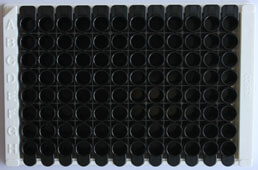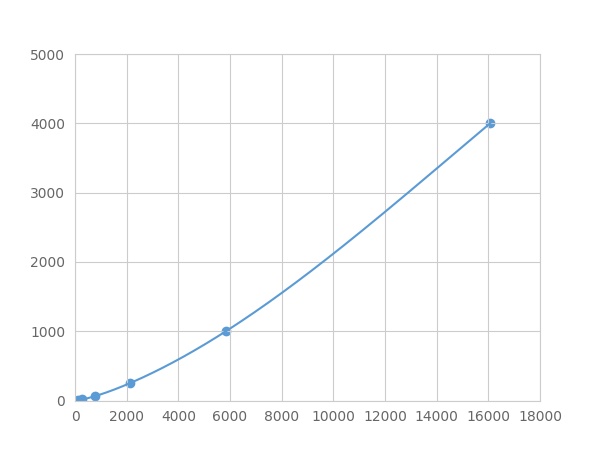Packages (Simulation)

Reagent Preparation

Image (I)
Image (II)
Certificate


Multiplex Assay Kit for Metallothionein 1 (MT1) ,etc. by FLIA (Flow Luminescence Immunoassay)
MT1A; MT1S; MTC
(Note: Up to 8-plex in one testing reaction)
- Product No.LMB119Mu
- Organism SpeciesMus musculus (Mouse) Same name, Different species.
- Sample Typeserum, plasma, tissue homogenates and other biological fluids
- Test MethodDouble-antibody Sandwich
- Assay Length3.5h
- Detection Range3.91-4000pg/mL
- SensitivityThe minimum detectable dose of this kit is typically less than 1.303 pg/mL.
- DownloadInstruction Manual
- UOM 8Plex 7Plex 6Plex 5Plex 4Plex 3Plex 2Plex1Plex
- FOB
US$ 427
US$ 443
US$ 468
US$ 501
US$ 534
US$ 583
US$ 657
US$ 821
Add to Price Calculator
Result
For more details, please contact local distributors!
Specificity
This assay has high sensitivity and excellent specificity for detection of Metallothionein 1 (MT1) ,etc. by FLIA (Flow Luminescence Immunoassay).
No significant cross-reactivity or interference between Metallothionein 1 (MT1) ,etc. by FLIA (Flow Luminescence Immunoassay) and analogues was observed.
Recovery
Matrices listed below were spiked with certain level of recombinant Metallothionein 1 (MT1) ,etc. by FLIA (Flow Luminescence Immunoassay) and the recovery rates were calculated by comparing the measured value to the expected amount of Metallothionein 1 (MT1) ,etc. by FLIA (Flow Luminescence Immunoassay) in samples.
| Matrix | Recovery range (%) | Average(%) |
| serum(n=5) | 97-104 | 101 |
| EDTA plasma(n=5) | 99-105 | 102 |
| heparin plasma(n=5) | 87-96 | 92 |
Precision
Intra-assay Precision (Precision within an assay): 3 samples with low, middle and high level Metallothionein 1 (MT1) ,etc. by FLIA (Flow Luminescence Immunoassay) were tested 20 times on one plate, respectively.
Inter-assay Precision (Precision between assays): 3 samples with low, middle and high level Metallothionein 1 (MT1) ,etc. by FLIA (Flow Luminescence Immunoassay) were tested on 3 different plates, 8 replicates in each plate.
CV(%) = SD/meanX100
Intra-Assay: CV<10%
Inter-Assay: CV<12%
Linearity
The linearity of the kit was assayed by testing samples spiked with appropriate concentration of Metallothionein 1 (MT1) ,etc. by FLIA (Flow Luminescence Immunoassay) and their serial dilutions. The results were demonstrated by the percentage of calculated concentration to the expected.
| Sample | 1:2 | 1:4 | 1:8 | 1:16 |
| serum(n=5) | 93-101% | 80-105% | 92-99% | 89-103% |
| EDTA plasma(n=5) | 88-103% | 99-105% | 83-101% | 81-102% |
| heparin plasma(n=5) | 78-101% | 80-101% | 95-104% | 86-94% |
Stability
The stability of kit is determined by the loss rate of activity. The loss rate of this kit is less than 5% within the expiration date under appropriate storage condition.
To minimize extra influence on the performance, operation procedures and lab conditions, especially room temperature, air humidity, incubator temperature should be strictly controlled. It is also strongly suggested that the whole assay is performed by the same operator from the beginning to the end.
Reagents and materials provided
| Reagents | Quantity | Reagents | Quantity |
| 96-well plate | 1 | Plate sealer for 96 wells | 4 |
| Pre-Mixed Standard | 2 | Standard Diluent | 1×20mL |
| Pre-Mixed Magnetic beads (22#:MT1) | 1 | Analysis buffer | 1×20mL |
| Pre-Mixed Detection Reagent A | 1×120μL | Assay Diluent A | 1×12mL |
| Detection Reagent B (PE-SA) | 1×120μL | Assay Diluent B | 1×12mL |
| Sheath Fluid | 1×10mL | Wash Buffer (30 × concentrate) | 1×20mL |
| Instruction manual | 1 |
Assay procedure summary
1. Preparation of standards, reagents and samples before the experiment;
2. Add 100μL standard or sample to each well,
add 10μL magnetic beads, and incubate 90min at 37°C on shaker;
3. Remove liquid on magnetic frame, add 100μL prepared Detection Reagent A. Incubate 60min at 37°C on shaker;
4. Wash plate on magnetic frame for three times;
5. Add 100μL prepared Detection Reagent B, and incubate 30 min at 37°C on shaker;
6. Wash plate on magnetic frame for three times;
7. Add 100μL sheath solution, swirl for 2 minutes, read on the machine.
GIVEAWAYS
INCREMENT SERVICES
| Magazine | Citations |
| Biotechology letters | Modulated expression of genes associated with NO signal transduction contributes to the cholesterol-lowering effect of electro-acupuncture SpringerLink: c1v4234150886817 |
| International Journal of Diabetes in Developing Countries | Evaluation of serum metallothionein-1, selenium, zinc, and copper in Ghanaian type 2 diabetes mellitus patients Springer: Source |
| Experimental Oncology | Peculiarities of antioxidant system and iron metabolism in organism during development of tumor resistance to cisplatin Pubmed:25265354 |
| Journal of Neurochemistry | Neuroprotective effects of levetiracetam target xCT in astrocytes in parkinsonian mice. Pubmed:26485447 |
| Toxicology Mechanisms and Methods | Evaluation of hepatorenal impairments in Wistar rats coexposed to low-dose lead, cadmium and manganese: insights into oxidative stress mechanism pubmed:27599793 |
| Environmental toxicology and pharmacology | Dyslipdemia induced by chronic low dose co-exposure to lead, cadmium and manganese in rats: the role of oxidative stress pubmed:28654832 |
| European Journal of Immunology | Metallothionein‐1 suppresses rheumatoid arthritis pathogenesis by shifting the Th17/Treg balance Pubmed:30055006 |
| Int Immunopharmacol | Metallothionein-1 is associated with osteoarthritis disease activity and suppresses proinflammatory cytokines production in synovial cells Pubmed: 31465913 |
| Influence of cadmium on blood and hair trace elements and biochemical markers |
| Catalog No. | Related products for research use of Mus musculus (Mouse) Organism species | Applications (RESEARCH USE ONLY!) |
| RPB119Mu02 | Recombinant Metallothionein 1 (MT1) | Positive Control; Immunogen; SDS-PAGE; WB. |
| EPB119Mu61 | Eukaryotic Metallothionein 1 (MT1) | Positive Control; Immunogen; SDS-PAGE; WB. |
| RPB119Mu01 | Recombinant Metallothionein 1 (MT1) | Positive Control; Immunogen; SDS-PAGE; WB. |
| PAB119Mu02 | Polyclonal Antibody to Metallothionein 1 (MT1) | WB; IHC; ICC; IP. |
| PAB119Mu01 | Polyclonal Antibody to Metallothionein 1 (MT1) | WB |
| MEB119Mu | Mini Samples ELISA Kit for Metallothionein 1 (MT1) | Enzyme-linked immunosorbent assay for Antigen Detection. |
| SEB119Mu | ELISA Kit for Metallothionein 1 (MT1) | Enzyme-linked immunosorbent assay for Antigen Detection. |
| LMB119Mu | Multiplex Assay Kit for Metallothionein 1 (MT1) ,etc. by FLIA (Flow Luminescence Immunoassay) | FLIA Kit for Antigen Detection. |
| PGB119Mu01 | Primer Pair for Metallothionein 1 (MT1) | PCR |





